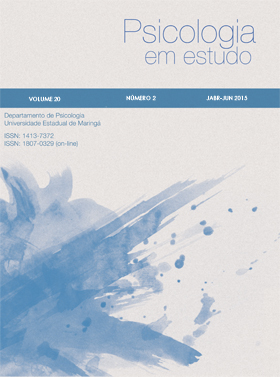ICONICIDADE COMO POSSIBILIDADE DE PESQUISA QUALITATIVA DA HIPNOSE
Resumo
O presente trabalho busca apresentar a iconicidade, enquanto noção semiótica, como possibilidade de pesquisa qualitativa para a hipnose, compreendida aqui como processos que abrangem modos específicos de comunicação e a emergência do transe. Por meio de noções-chave da semiótica e da complexidade, ele discute algumas vinhetas clínicas de hipnose nas quais a noção de iconicidade e os conceitos a ela ligados oferecem consideráveis possibilidades explicativas. Em seguida, esboça como a noção de informação, em termos qualitativos, materiais e interpretativos pode oferecer importantes elementos para a construção de uma pesquisa qualitativa da hipnose. Este momento é discutido e problematizado com outras perspectivas de pesquisa qualitativa, visando-se destacar a potencialidade explicativa e metodológica da noção de informação. O trabalho é concluído ressaltando que, apesar de a iconicidade ainda não ter se estabelecido como possível noção importante para a pesquisa qualitativa, ela possui características e potencialidades que lhe permitirão investigações de grande pertinência neste campo.Downloads
Referências
Erickson, M., & Rossi, E. (1979). Hypnotherapy: an exploratory casebook. New York: Irvington.
Morin, E. (2001). La méthode V. L’humanité de l’humanité. Paris: Seuil.
Neubern, M. (2016a). Hipnose clínica e dores crônicas: rumo a uma perspectiva complexa. Psicologia em Estudo, 21 (2), 303 – 312.
Nöth, W. (2015). The paradigms of iconicity in language and literature. Em M. Hiraga (org). Iconicity: east meets west. (pp. 13 – 34). Amsterdan: John Benjamins.
As opiniões emitidas, são de exclusiva responsabilidade do(s) autor(es). Ao submeterem o manuscrito ao Conselho Editorial de Psicologia em Estudo, o(s) autor(es) assume(m) a responsabilidade de não ter previamente publicado ou submetido o mesmo manuscrito por outro periódico. Em caso de autoria múltipla, o manuscrito deve vir acompanhado de autorização assinada por todos os autores. Artigos aceitos para publicação passam a ser propriedade da revista, podendo ser remixados e reaproveitados conforme prevê a licença Creative Commons CC-BY.
The opinions expressed are the sole responsibility of the author (s). When submitting the manuscript to the Editorial Board of Study Psychology, the author (s) assumes responsibility for not having previously published or submitted the same manuscript by another journal. In case of multiple authorship, the manuscript must be accompanied by an authorization signed by all authors. Articles accepted for publication become the property of the journal, and can be remixed and reused as provided for in theby a license Creative Commons CC-BY.
















